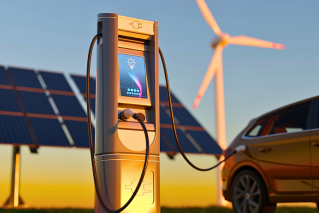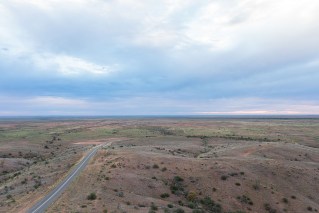UN urges world to declare ‘climate emergency’ as Morrison sidelined at summit
The UN has urged world leaders to declare states of “climate emergency” in their countries to spur action to halt catastrophic global warming.
As momentum builds for steeper cuts to emissions, UN Secretary-General Antonio Guterres told a climate summit there was no denying the world was facing a “dramatic emergency”.
“That is why today, I call on all leaders worldwide to declare a State of Climate Emergency in their countries until carbon neutrality is reached.”
More than 70 world leaders are due to address the one-day virtual gathering, co-hosted by Britain and France, on the fifth anniversary of the 2015 Paris climate accord.
Only countries deemed sufficiently serious about fighting the existential threat of climate change were invited to speak.
Australia’s international reputation as a climate change laggard consigned Prime Minister Scott Morrison to watch the summit from the sidelines.
Mr Morrison was reportedly livid with UK Prime Minister Boris Johnson upon learning that he would not be getting an invite due to his government’s unimpressive record on tackling climate change.
Instead, Australia has to look on with South Africa and Brazil – where climate change-denying President Jair Bolsonaro has triggered global outrage by fuelling deforestation of the Amazon.

The world is on track for three degrees warming by the end of the century.
The summit comes as a UN report this week warned the world is on track to warm by more than three degrees by the end of the century, despite the coronavirus pandemic prompting a record drop in global emissions.
With 2020 on track to be one of the the world’s three warmest years on record, Australia is one of five G20 members whose climate ambitions are expected to fall short, according to the report.
PM’s climate credibility questioned
With his hopes of addressing the UN summit deflated, Mr Morrison instead addressed a virtual forum of Pacific Island leaders on Friday night, telling Australia’s neighbours that his government was committed to reaching net zero emissions “as soon as possible”.
The PM signalled that he would abandon his previous, roundly-criticised plan of using Kyoto Protocol ‘carry-over credits’ to meet the target, and cut Australia’s 2005 emission levels by up to 28 per cent by 2030.
“Our commitment to the Paris Agreement has never wavered. We have made it, when reducing emissions through practical clean energy technology,” Mr Morrison told Pacific Island leaders.
“Australia is very confident we will now achieve our 2030 target without the need to draw on our carry-over credits that Australians earned from overachieving on our Kyoto-era commitments.”
The Coalition government’s commitment to addressing climate change has evolved somewhat over the past five years.
In 2015, footage of then-Social Services minister Mr Morrison, Tony Abbott, and Peter Dutton joking about the effects of rising sea levels on low-lying nations while holding talks with Australia’s Pacific Island neighbours was broadcast.
“Time doesn’t mean anything when you’re about to have water lapping at your door,” Mr Dutton said, prompting laughter from Mr Abbott and a smirk from Mr Morrison.
On Saturday, Labor’s climate change spokesman, Mark Butler, slammed Mr Morrison as “all spin and no substance”, and said the government’s position on climate changed risked Australia becoming increasingly isolated on the world stage.
“He expected some sort of award or commendation for giving a heavily qualified suggestion that he might not, after all, try to cheat the system by using Kyoto carryover credits,” Mr Butler said.
“Scott Morrison’s attempt this week to pivot on climate change has been shown to be all spin and no substance, and the rest of the world are seeing right through that spin.
“His pigheaded refusal to refuse to commit to net zero emissions will see Australia continue to be isolated globally and will come at a huge cost to Australians in lost jobs and lost investment.”
Will Australia ‘meet and beat’ its target?
While the PM insists Australia will “meet and beat” its initial emissions target, Climate Council researcher Simon Bradshaw believes the target is itself an issue.
The Australian government committed to reducing greenhouse gas emissions to 26–28 per cent below 2005 levels by 2030, but Dr Bradshaw said the target should have been strengthened by now.
“It was never a target based on science,” Dr Bradshaw said.
And now Australia is very much an outlier, in refusing to lift and strengthen the target.”
When countries first signed on to the Paris Agreement five years ago, it was expected the targets would be reviewed and lifted.
“That’s the bigger picture the government has ignored,” Dr Bradshaw said.
“If you look at the UK specifically, they’ve ratcheted it up from 57 per cent to now 68 per cent, it’s a much stronger target.”
Many countries have now agreed to net zero emissions by 2050.
“We’ve had China, the world’s biggest emitter, Japan, and South Korea, some of our major trading partners, all commit to net zero,” Dr Bradshaw said, adding that “126 countries have made that commitment in one way or another.”
Australia is currently on target to hit net zero in the 23rd century.
In 2015, the independent statutory body, The Climate Change Authority, released a milestone report suggesting the 2030 target should be 45-65 per cent below 2005 levels.
Instead, the government chose 26 per cent.
Without drastic climate action the world will suffer, Dr Bradshaw said.
“We have an enormous gap to close. We are on track for over 2 degrees of warming, it’s barely survivable.”








